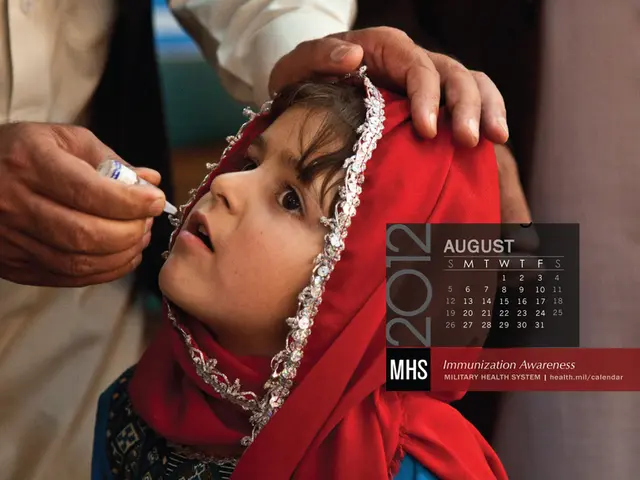MRSA Infiltration: Spread, Protection Strategies, and Further Insights
Carrying MRSA, or Methicillin-resistant Staphylococcus aureus, does not necessarily lead to an infection. Instead, these bacteria can reside on or within the body without causing any symptoms. However, healthcare professionals view this as a concern since individuals carrying MRSA can unwittingly spread the bacteria and cause infections, particularly in healthcare settings.
MRSA can be found in various moist areas of the body, including the nose, throat, groin, armpits, skin folds, and perineal region. Even though it doesn't produce symptoms, MRSA colonization is troubling because the bacteria are resistant to many common antibiotics, including methicillin, penicillin, amoxicillin, and oxacillin. This makes treatment more challenging and potentially riskier, especially for vulnerable populations.
The spread of MRSA can occur through close contact with infected or colonized individuals, sharing unclean equipment or supplies, and contamination of household surfaces. Colonization can sometimes lead to an infection, especially when the immune system is compromised or there's an existing wound. To minimize the risks of MRSA colonization and infection, adhering to hygiene guidelines is essential. This includes washing hands and showering regularly with antiseptic soap, keeping wounds clean and covered, avoiding shared personal items, washing clothes, sheets, and towels in hot water and drying on high heat, and frequently disinfecting surface areas.
In medical settings, medical professionals may screen individuals for the presence of MRSA bacteria, especially before surgery. They will perform this by swabbing common infection sites. If MRSA colonization is detected, they may prescribe nasal cream or spray, body wash, and shampoo to reduce the bacteria count. Use is usually required for about 5 to 10 days.
Individuals should watch for signs of skin infection, particularly at sites with any cuts or abrasions. Signs of a potential MRSA infection include:
- Pain
- Redness
- Pus
- Swelling
- Warmth upon touch
Following good hygiene practices at home and in medical settings can help reduce the chances of MRSA colonization and infection for everyone.
For more information on MRSA:
- Is MRSA capable of resolving on its own?
- Does chlorine effectively kill MRSA?
- Will I always carry MRSA bacteria?
- Science has highlighted the existence of superbugs like MRSA, which can reside in our bodies without causing symptoms yet pose a significant threat due to their resistance to common antibiotics.
- Proper workplace-wellness practices can help mitigate the spread of MRSA, especially in healthcare settings where chronic diseases and other medical conditions are managed.
- Respiratory conditions, digestive health, eye-health, hearing, and mental-health issues are among the many health concerns that health-and-wellness experts address.
- Fitness-and-exercise, nutrition, and aging are crucial factors affecting health-and-wellness, and they need careful management to maintain overall well-being.
- Skin-care is essential in preventing the colonization and infection of MRSA, as it can spread through close contact and sharing unclean items.
- Therapies-and-treatments for MRSA infections may include antibiotics, but as the bacteria are resistant to several, alternative treatments like CBD may be considered.
- Neurological-disorders such as Alzheimer's, Parkinson's, and multiple sclerosis, along with skin-conditions like acne and eczema, require specialized care and attention.
- In addition to MRSA, other autoimmune-disorders, such as lupus and rheumatoid arthritis, can cause debilitating symptoms and require careful management.
- Mental-health issues like depression, anxiety, and bipolar disorder call for compassionate care, making men's-health, womens-health, and parenting crucial areas of focus for healthcare professionals.
- Weight-management and cardiovascular-health are significant factors in overall health, as they impact various aspects of well-being and aging.
- Medicare is designed to help provide healthcare coverage for eligible retirees aged 65 or older, but it may not cover certain treatments for MRSA and other chronic conditions.
- MRSA can cause respiratory problems if it spreads to the lungs, leading to potentially life-threatening conditions like pneumonia.
- Adopting a healthy lifestyle that includes good nutrition, regular exercise, and stress management can help strengthen the immune system and ward off potential infections.
- Lack of sleep can weaken the immune system and increase the risk of infections, so prioritizing rest is essential for maintaining overall health.
- Cancers, particularly those affecting the skin, are often treatable with various conventional and alternative therapies, and skin-care practices play a crucial role in prevention and early detection of precancerous growths.








